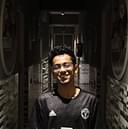The announcement of Michael Jordan‘s initial retirement in 1993 came as a profound shock to the NBA community. It left a void not only within the league but also deeply affected his close friend Charles Barkley. During that time, Barkley was playing for the Phoenix Suns and had expressed his own inclination towards retirement, stating he was “99.9% certain” that he would hang up his basketball shoes by the end of the season.
Advertisement
Jordan’s departure had a significant impact on the NBA as a whole. It not only affected the media coverage surrounding the league but also had repercussions on the performance of the Chicago Bulls. The team he had led to a remarkable three-peat championship victory. The Bulls struggled to replicate the same level of dominance they had enjoyed with Jordan on their roster.
However, the NBA landscape underwent a dramatic shift with MJ’s triumphant return to the league in 1995. This marked a pivotal turning point, as Jordan’s comeback brought about a resurgence in both the Bulls’ fortunes and the league’s overall excitement.
Charles Barkley was to follow suit with Michael Jordan in retiring from the NBA
Following the intense 1993 NBA Finals, in which Charles Barkley’s Phoenix Suns fell short against Michael Jordan’s Chicago Bulls, Barkley, who had developed a close friendship with Jordan, contemplated his own future in the league. Despite the disappointment of not securing a championship ring, Barkley expressed happiness for his friend’s successful completion of a three-peat.
Tragically, just a month after winning his third consecutive championship, Jordan’s father, James Jordan, was murdered. This devastating event deeply affected Jordan, leading him to announce his retirement a few weeks later. Jordan cited a loss of motivation to continue playing basketball after the tragic loss of his father. Barkley, sharing a similar sentiment, contemplated following in Jordan’s footsteps.
A 1993 Sports Illustrated report highlighted Barkley’s mindset during that period, stating that he was “99.9% certain” about retiring after the 1993-94 season. The following excerpt provides further insight into Barkley’s situation at the time:
“In as much as passing anything on fire to Barkley seems like asking for trouble, it may be just as well that the league’s reigning MVP has already calculated the likelihood of his retirement at the end of the ’93-94 season as ‘99.9 percent certain.'”
Despite Charles Barkley expressing his intention to retire after the 1993-94 season, his coach at the time, Paul Westphal, held a different belief. Westphal remained confident that Barkley’s desire to win a championship still burned within him, considering his competitive drive. Dismissing Barkley’s claims as a bluff, the coach playfully remarked, “We all know Charles didn’t major in maths.”
Contrary to his initial statements, Barkley continued his NBA career for another two seasons with the Phoenix Suns before ultimately joining the Houston Rockets in the latter part of his playing days. He eventually retired in 2000, after a successful and illustrious 16-season-long career that encompassed numerous notable achievements.
Barkley retired without a championship ring
Despite Charles Barkley’s remarkable achievements, including being named the 1993 Most Valuable Player and earning 11 All-Star selections, he is often subjected to ridicule due to his inability to secure an NBA championship ring throughout his 16-season career. This stands in stark contrast to his close friend Michael Jordan. His Airness had already won three championships before his initial retirement. It is possible that Barkley reconsidered his decision to retire in hopes of finally attaining that coveted championship ring.
Unfortunately, Barkley’s fortunes did not align during the remaining two years he spent with the Phoenix Suns. He was unable to capture a league title. His sole NBA Finals appearance came in 1993 against Jordan’s Bulls. It resulted in a defeat that added to the strain on their relationship. Barkley’s open criticism of Jordan’s tenure as the Washington Wizards general manager further contributed to the souring of their once close bond.







